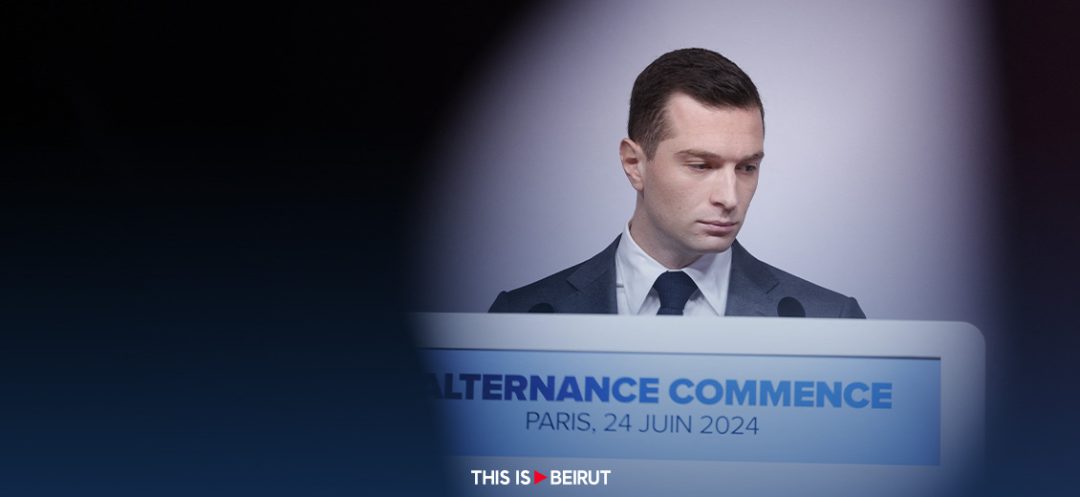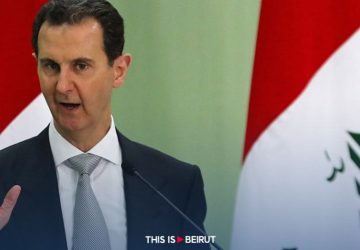Jordan Bardella, 28 years old and ever closer to Matignon since the National Rally (RN)’s success in the first round of legislative elections, has established himself as the poster child and embodiment of LePenism without even bearing the name.
Since the dissolution announcement, he has tried his hand at three-piece suits, whose austerity should underline his seriousness and rigor.
He has also sometimes had to shun those who brandish their phones at each of his appearances: almost a heartbreak for the man who has made this selfie strategy a trademark for months in order to consolidate his popularity.
Just days away from his possible accession to Matignon, it’s a question of rebalancing his image as a pop star in ever-closer-fitting shirts and jackets, surrounded by groupies at every gala event, and presenting the face of a presumed prime minister of France.
In mid-June, Marine Le Pen confirmed that it would be him, not her, who would become head of government in the event of a majority in the Assembly.
So, after fifty years of LePenism, it’s a former poster boy, not even thirty years old, who is to bring the far right to power.
“Marine Le Pen sees him as a spiritual son,” says a member of parliament close to both of them. Almost an advantage in a family where blood ties have never prevented betrayal and resentment.
Bardella, heir to the clan? The young man likes to play the ingenuous “born in 1995” role, the better to consign the Front National (FN)’s sulphurous past and Jean-Marie Le Pen’s outrages to a bygone era.
It’s a big string that sometimes breaks, notably when he explained in November that the founder of the FN was “not anti-Semitic,” despite his court convictions. Faced with the scandal, he was forced to backtrack.
From identitarians to sovereignists
The man who today presents himself as the leader of the camp of “reason” and “moderation” in the face of “extremism” nevertheless linked his adolescence and youth to pure, even radical LePenism.
At 18, he lined up to have his photo taken with the “devil of the Republic,” Jean-Marie Le Pen. Later, it was under the benevolent eye of Frédéric Chatillon, a figure of the Groupe Union Défense (GUD) in the 90s, that Jordan Bardella began his political apprenticeship, while forging an intimate relationship with his daughter.
Bardella the student, whomajored in geography in college after passing his baccalaureate with honors, frequented the same bars as the “identitarians” of his generation on the Left Bank in Paris. And it was with Philippe Vardon, a former leader of the ultra-right group Bloc identitaire, that he got his start in the RN.
The Saint-Denis activist, who became a member in 2012, was quickly spotted by the party: he embodied the new-look LePenism dear to the movement’s new president.
A descendant of Italian immigrants, the young man also understands the advantage he can draw from his “merit-based” background in the slums of this deprived northern suburb of the capital. The son of a divorced nursery school officer, he doesn’t dwell on his father, a prosperous SME boss who gifted him a car and rented him an apartment.
At the age of 20, Jordan Bardella was already an RN regional councilor for the Île-de-France region, having quickly abandoned the lecture hall. A few months earlier, he had been the parliamentary assistant to Jean-François Jalkh, a cog as extreme right-wing as he is essential to the Frontist machine.
But it was with ease, if not zeal, that he then followed in the footsteps of the party’s all-powerful number two, Florian Philippot, scourge of identitarians and champion of social sovereignty.
Black box
At the RN, his versatility is appreciated.
His first consecration came in 2019, when Marine Le Pen offered him the head of her list for the European elections. By surpassing the Macron score, Jordan Bardella washed away the affront of his boss’s failed debate with Emmanuel Macron two years earlier.
He then found a new mentor in Philippe Olivier, Marine Le Pen’s brother-in-law and main adviser, while beginning a relationship with his daughter, Nolwenn Olivier, which is now over – the young man has since adopted great discretion about his private life.
Spokesperson for candidate Le Pen in 2022, Jordan Bardella impressed with his media savvy and agility in debates. “He’s a fast learner,” says one of RN’s spokespersons. His detractors describe him as a “Frankenstein” who absorbs, digests and then regurgitates the elements of language, and whose oratorical talent conceals, at best, a doctrinal void.
Or even “rightist positions,” as expressed by RN mayor of Hénin-Beaumont, Steeve Briois, when the member of the European Parliament (MEP) took over as head of the RN in 2023, warning against a “potential re-radicalization” of the party. Wasn’t it the same Bardella who said that “Didier Raoult is to medicine” what the RN is to “politics?”
Marine Le Pen has cut short any slings and arrows: The young man needs to broaden his electoral base, which is stuck under a glass ceiling. Jordan Bardella’s more liberal, pro-business nuance is a welcome addition to the LePenist neither-right-nor-left. “Complementarity,” the two swear.
“Between them, it’s a black box, we don’t know what’s inside,” notes an RN deputy. For his part, the young man emphasizes his deference as much as his singularity, seeking to thwart the disastrous fate that the party with the flame logo has always reserved for its number twos.
But the child prodigy of LePenism is also, in a certain sense, the child prodigy of Macronism.
Emmanuel Macron paved the way by breaking political codes and putting young people in charge.
Jordan Bardella has no hesitation in holding up a mirror to Gabriel Attal, whom he has made his greatest enemy.
Last month, in a debate with Macronist Valérie Hayer, he didn’t hesitate to repeat formulas that candidate Macron had hurled at his rival Le Pen during their presidential debates.
The dissolution has nevertheless plunged the disruptive Jordan Bardella into an abyss of questioning: If he were to be appointed to Matignon, cohabitation could hamper Marine Le Pen’s chances of victory in 2027. What’s more, the experience he has acquired in government would make his own claims to the Élysée Palace stronger than ever.
Was it this vertigo that led him to declare last week that he would refuse the post in the event of a simple relative majority? Or is he betting that an unmanageable National Assembly would lead to Emmanuel Macron’s resignation? So that everything goes (almost) according to plan again…
Paul Aubriat, with AFP





